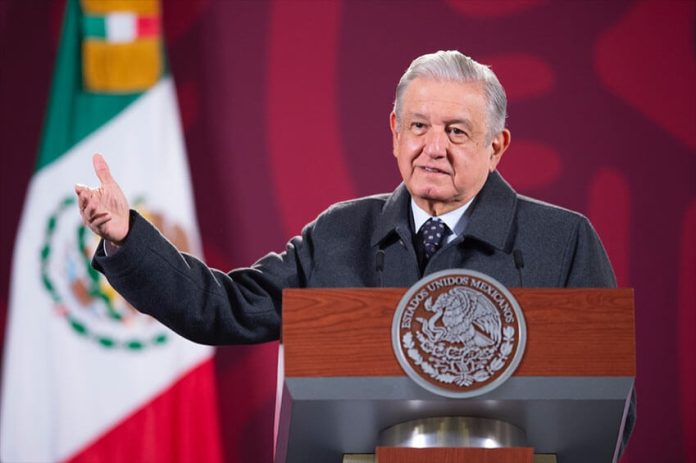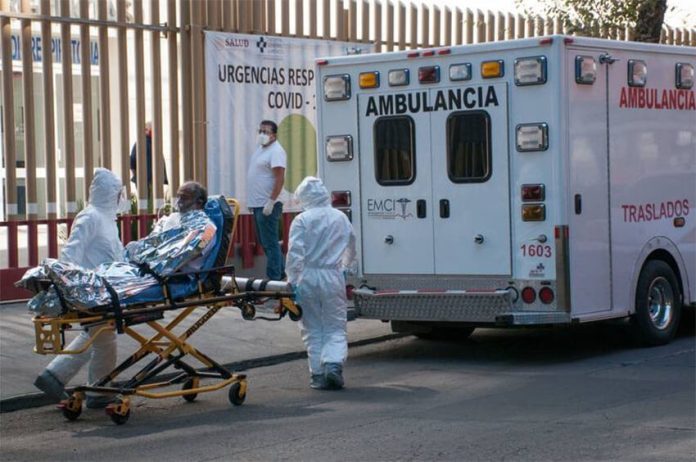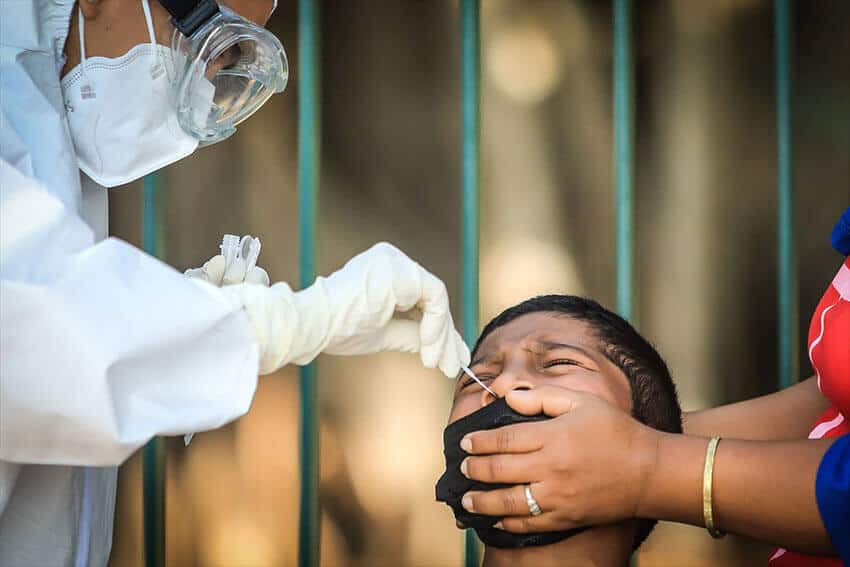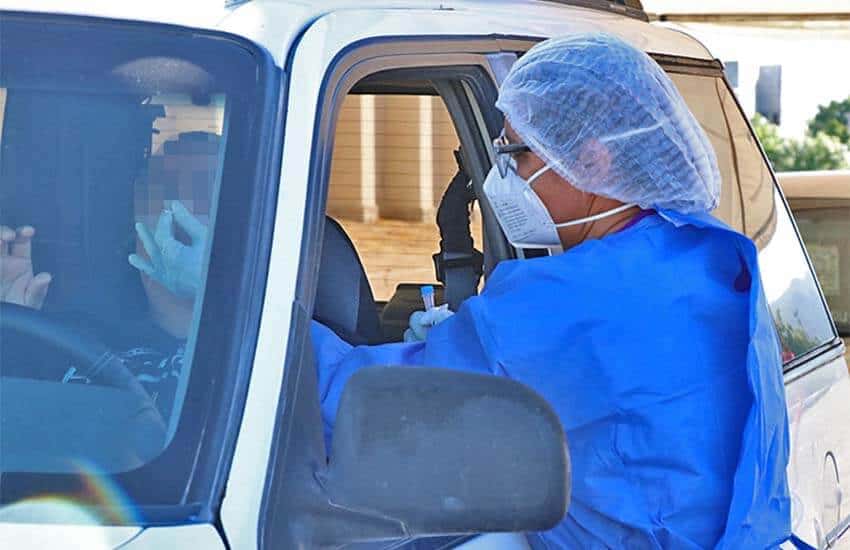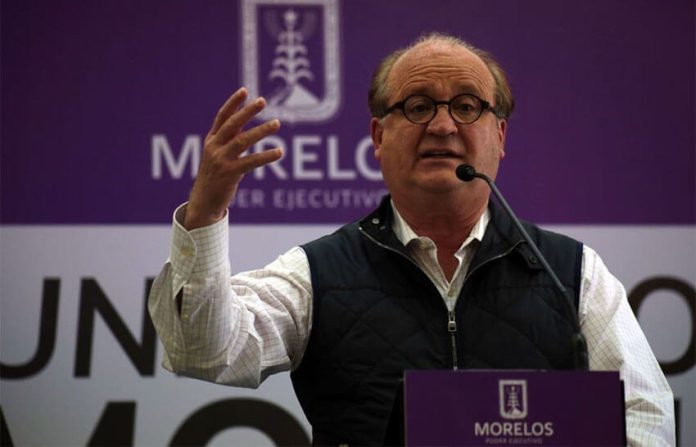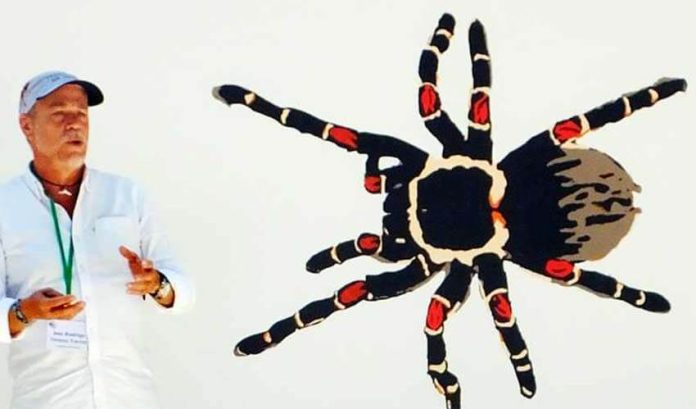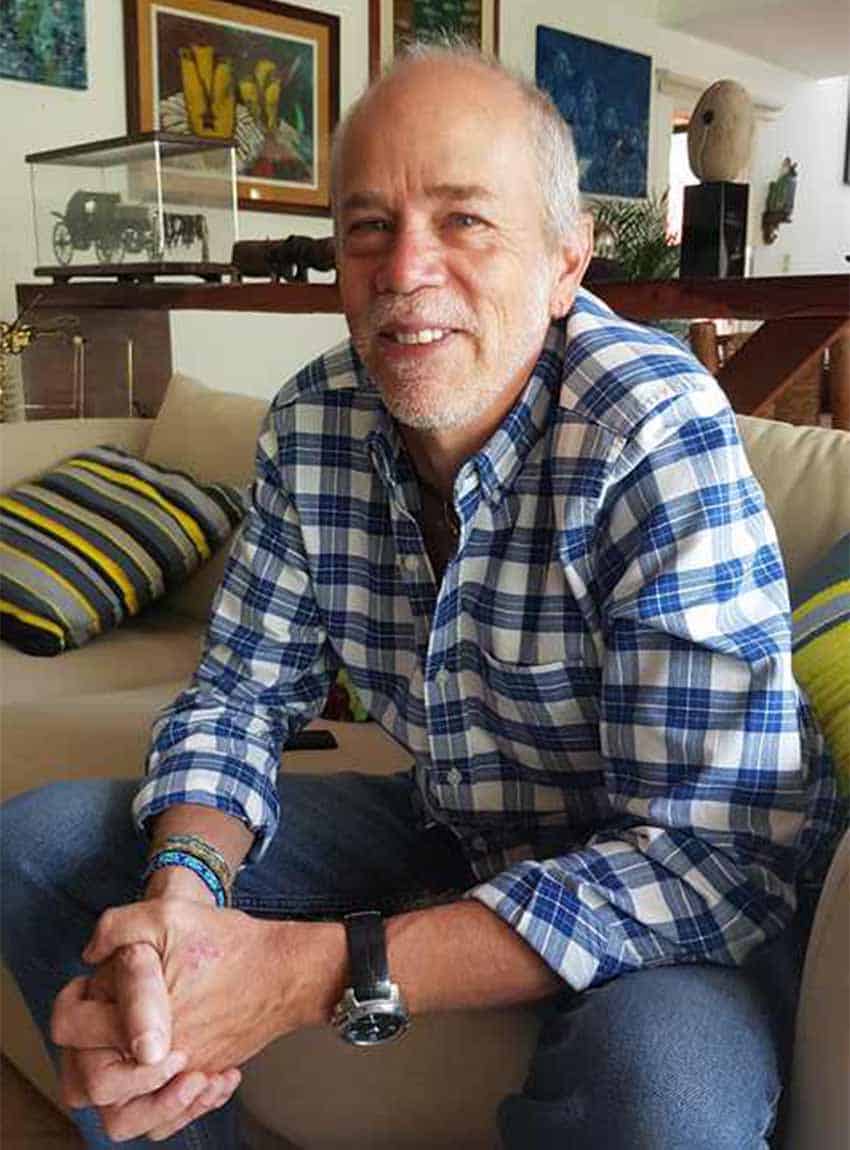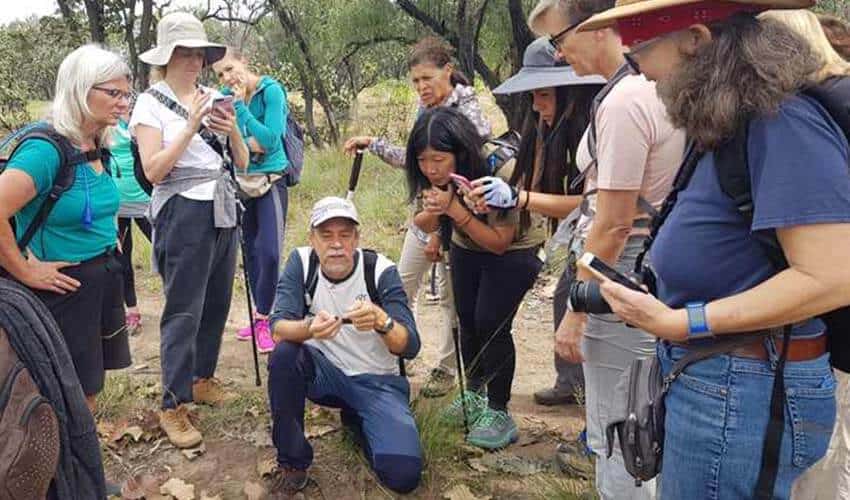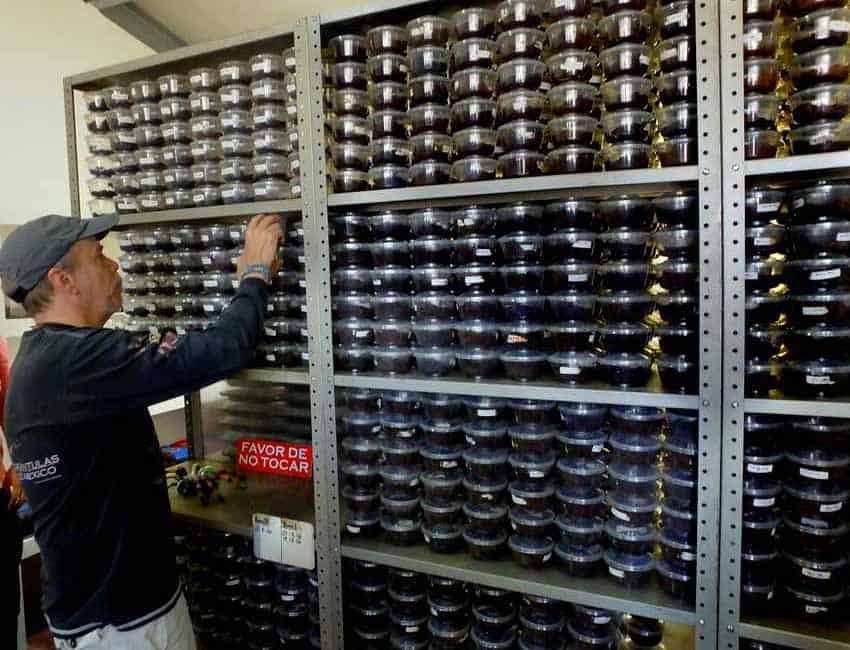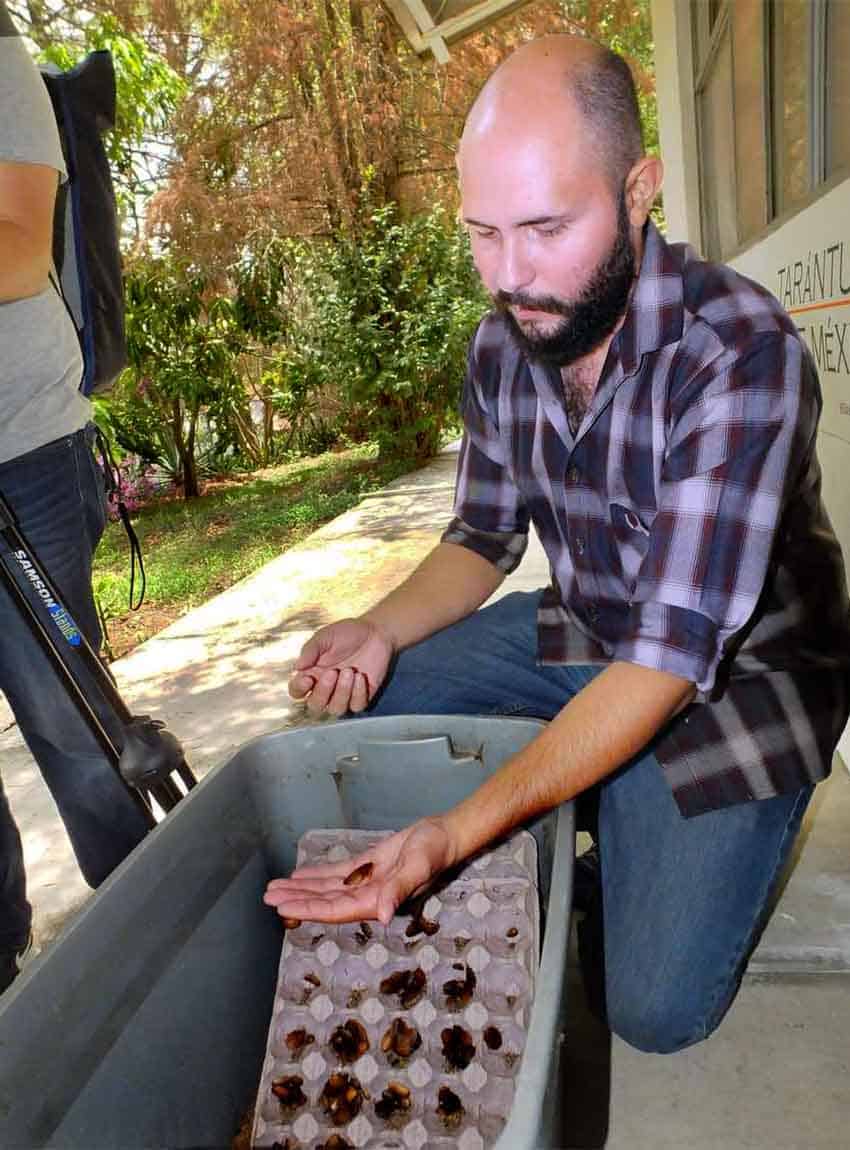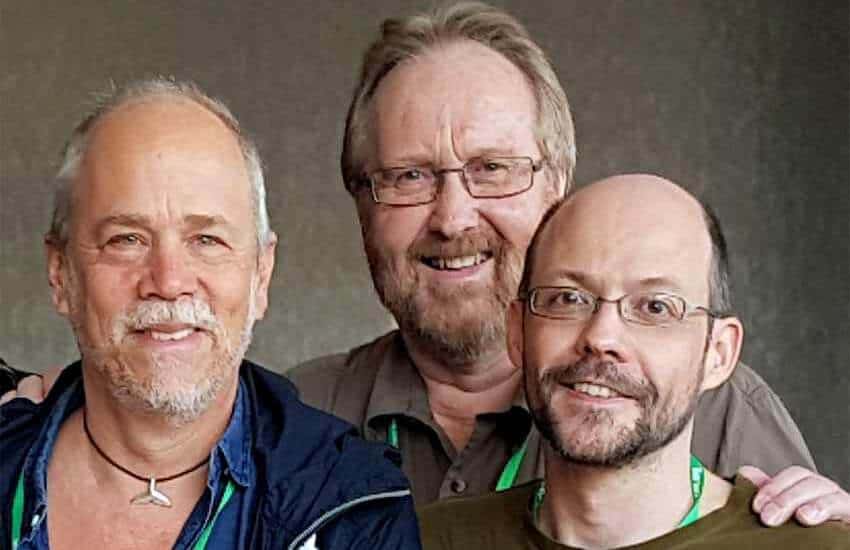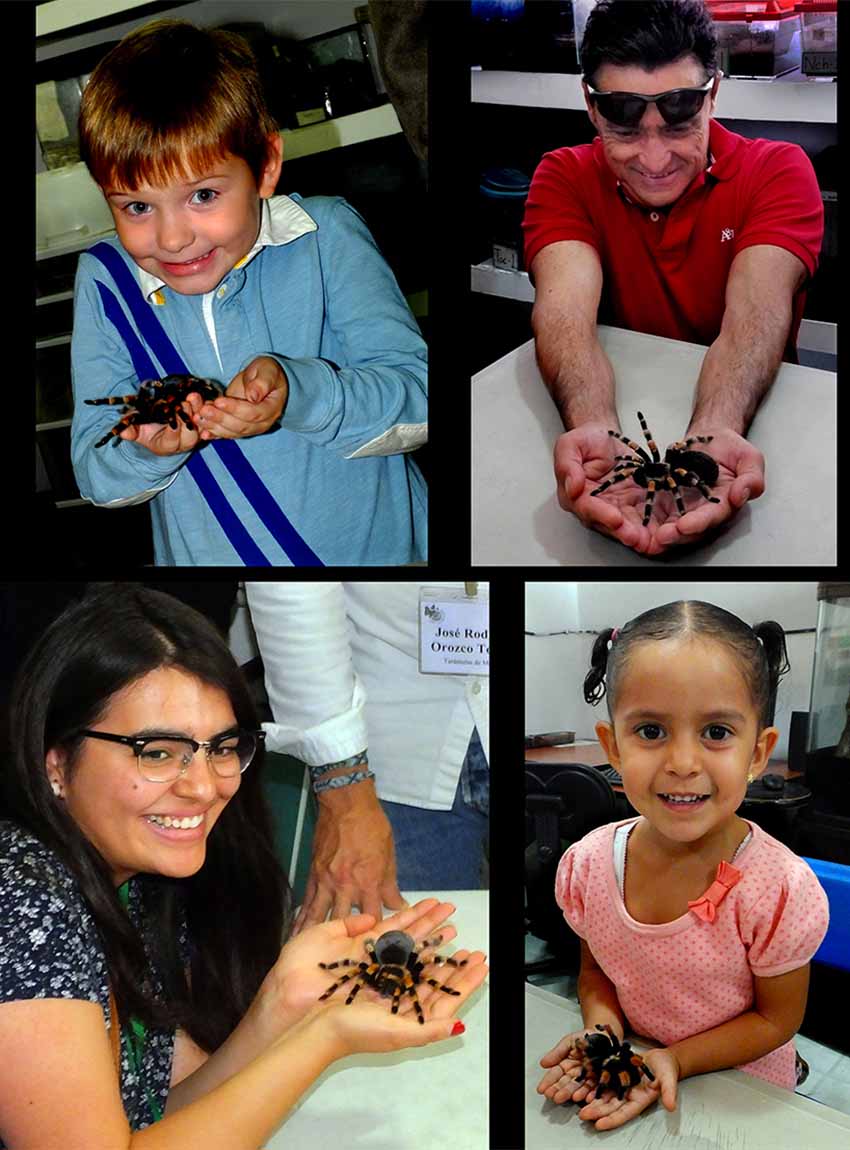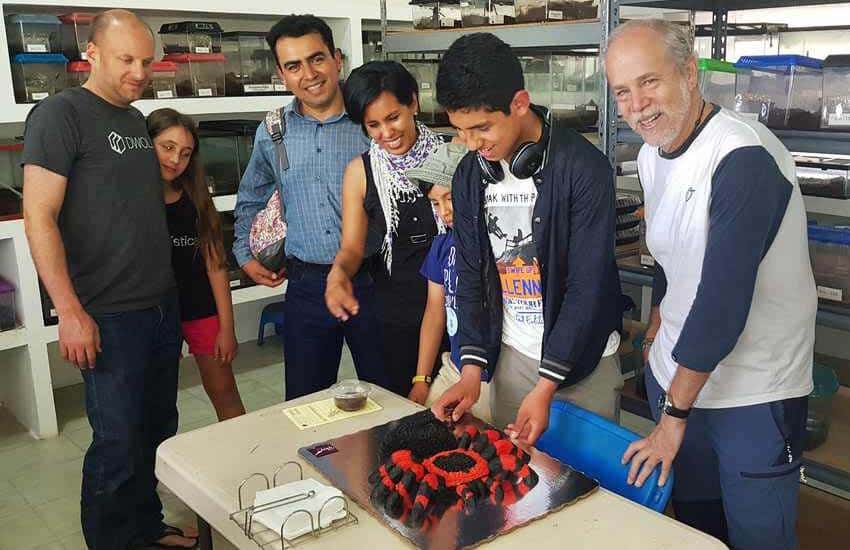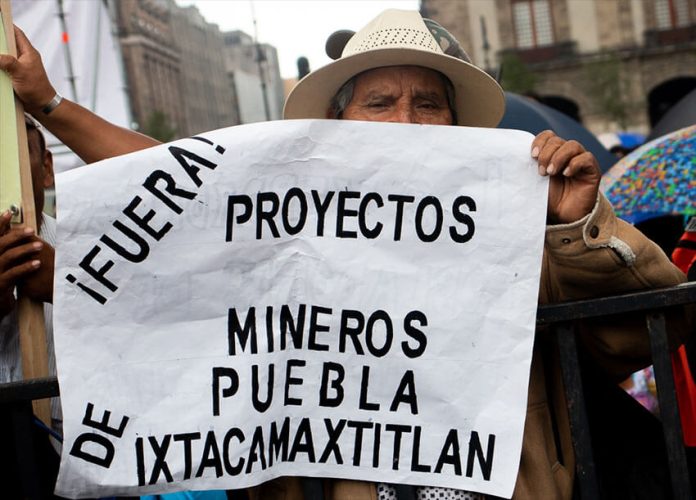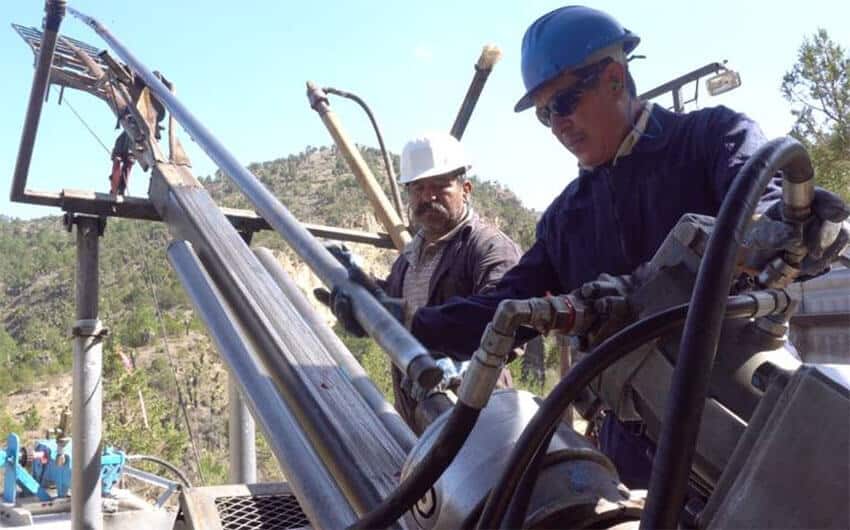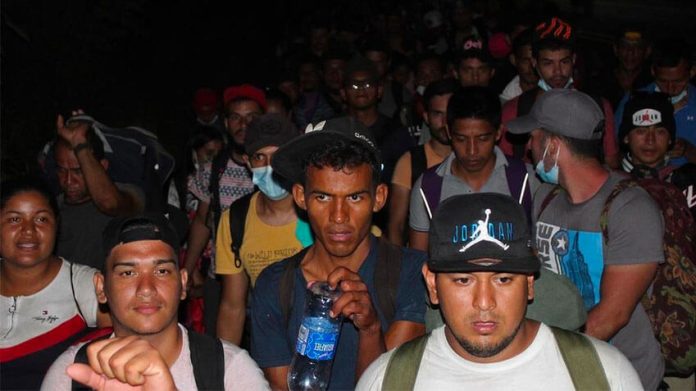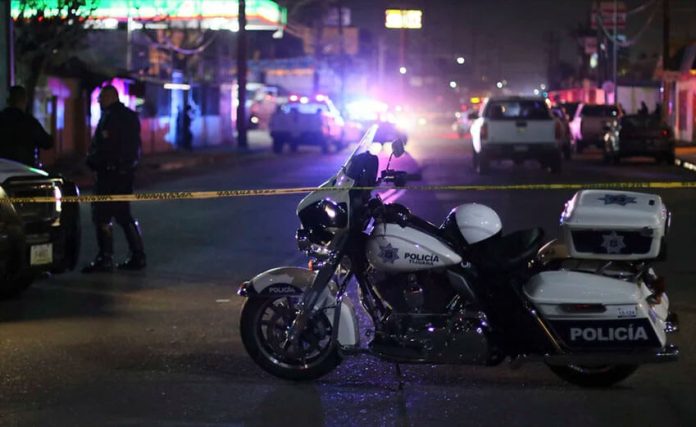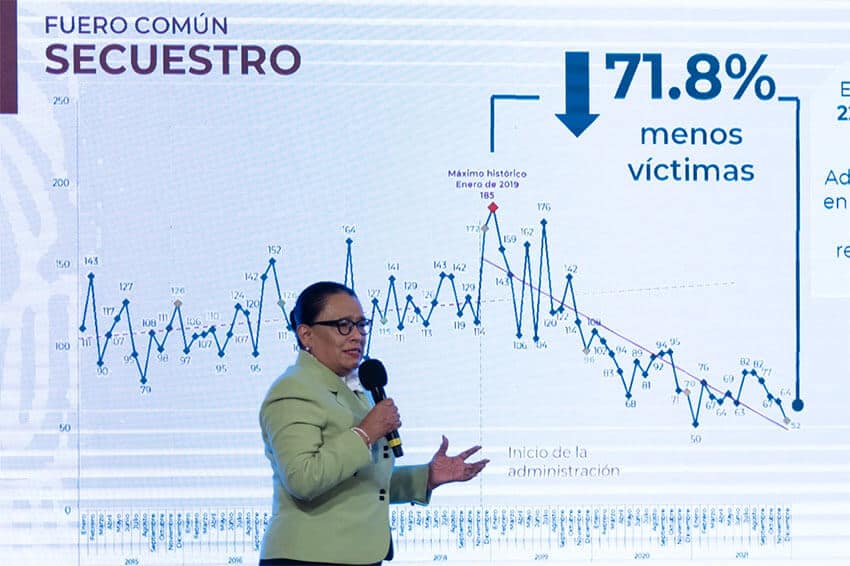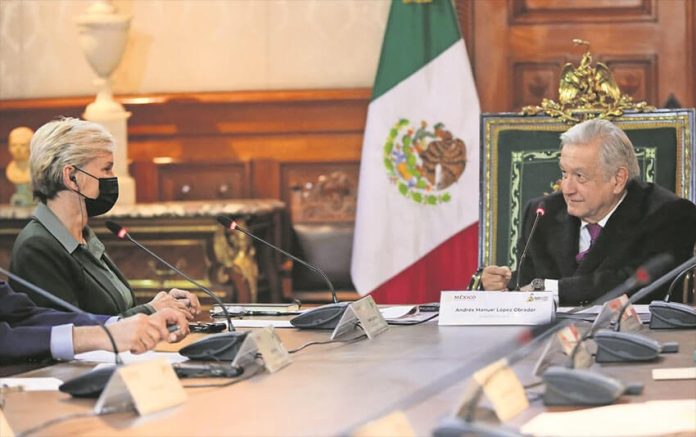After four days on the sidelines, President López Obrador was back in his natural place this week: before the press and public at the National Palace.
His old friend and fellow Tabascan, Interior Minister Adán Augusto López, had stood in during a forced absence due to COVID-19.
They both attended a ceremony at the Bellas Artes Museum on Sunday for the poet and writer Carlos Pellicer, who was also from the southern state. He acted as a mentor, and something of a moral guide, to AMLO early in his career.
Monday
The president was back and offered a first hand account of the omicron variant. “It is demonstrable that this variant does not have the same severity as the delta variant, neither in symptoms nor in recovery time … it is a very contagious variant, very very contagious, infections are growing a lot in the country.”
He also offered some advice for a speedy recovery: “Honey for the throat, I tried to not put too much lime as it’s so expensive … they make fun of the Vaporub, but it helps.”
The president switched topics to finance.”Hopefully it mexicanizes … for Mexican bankers and Mexican entrepreneurs to participate and keep the bank in the country,” he said of the country’s third largest bank, Banamex, which was put up for sale during his absence.
However, he wasn’t prepared to forget a rather friendly business deal two decades before. “When they sold Banamex they did not pay taxes, this was in 2001 … they always argue that it was legal. And I say: yes, it was legal, but immoral, because how can you not pay taxes? That only happens in a country … where all the laws were made to benefit a minority … throughout the neoliberal period they reformed the constitution and the laws to protect elites and legalize corruption, theft and looting.”
Tuesday
COVID-19 has featured heavily in recent conferences but the Deputy Health Minister, Hugo López-Gatell, was back on Tuesday to sort the wheat from the chaff. He said there was an enormous contrast between omicron cases and hospitalizations and deaths. Reopening schools, he added, hadn’t caused a significantly higher number of infections and over 40s could sign up for a booster shot.
Later in the conference, a journalist asked the president about the appointment of historian Pedro Salmerón as the Mexican ambassador to Panama. Salmerón was accused of sexually harassing a student while teaching at the ITAM university in Mexico City. “There isn’t, as I understand it, any formal legal complaint [against Salmerón] … he’s a first-rate historian,” the president replied.
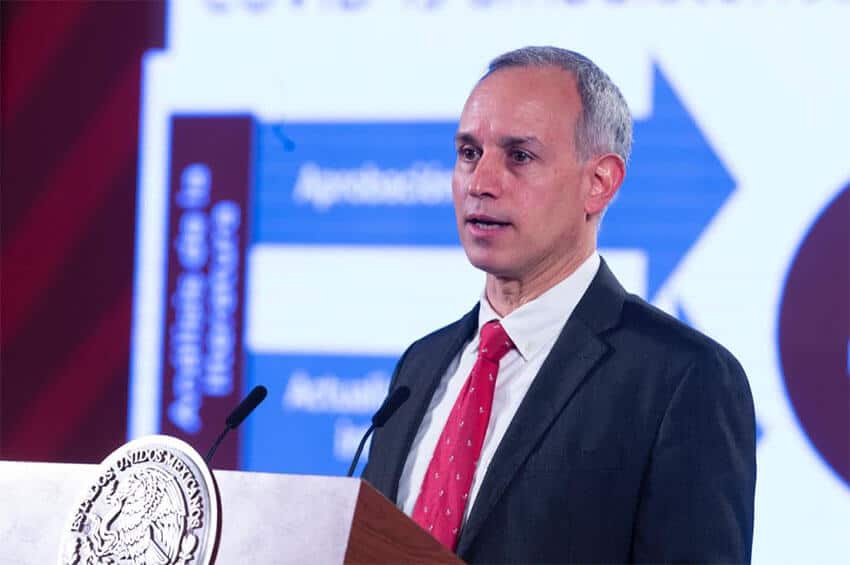
AMLO also commented on the Institutional Revolutionary Party’s threat to expel two ex-governors if they accepted diplomatic positions offered by the president.
“It seems very harsh and very excessive … they can’t stop with their militancy,” he said. “I find it very unpolitical, very intolerant and hopefully they will change their minds.”
Was the Tabascan’s criticism of journalists causing more of them to be murdered, after two recent killings?
“That’s speculation, I would say it’s incorrect. [The criticisms] have nothing to do with it. If we analyze case by case, there is no relationship.”
Wednesday
Truth adjudicator Elizabeth García Vilchis laid out the agenda for her feature: “Today we’ve brought two news reports and an invitation,” she said.
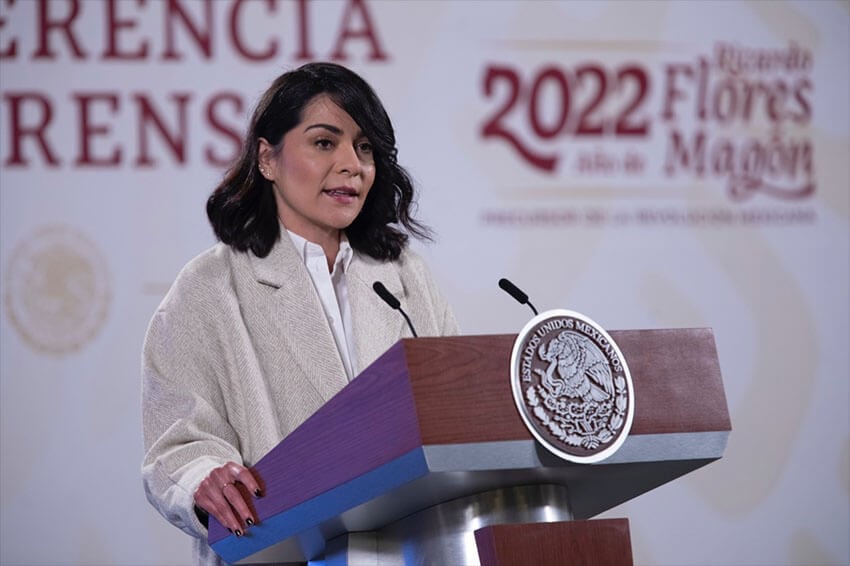
The under-construction Dos Bocas refinery in Tabasco, García confirmed, had not flooded and she insisted that the president and Mayor Claudia Sheinbaum were not selling COVID-19 tests in Mexico City airport, as opposition deputy Luisa Gutiérrez Ureña suggested.
And then, the invitation: “Since last week the section ‘who’s who in the lies of the week’ opened a space for all citizens committed against the infodemic and the right to information to participate in the exercise … we invite all citizens to collaborate in this section by denouncing false reports through Facebook … Twitter … and email … Together we’ll fight the infodemic,” she said.
The president speculated on common interests between the newspaper Reforma and a Spanish energy company, and issued an ironic offer. “Now a permit has expired for Iberdrola and Reforma is saying that there will be a blackout because they want their permit renewed. What flavor would they like their ice cream?” he asked, pretending to be at their service.
The president also had a message for a Spanish newspaper he particularly dislikes. A 2012 op-ed in El País was titled “Obrador, a burden.”
“I do not hate, but I do not forget,” he stated.
Thursday
The monthly security report kicked off Thursday’s conference. Crime was going in the right direction, Security Minister Rosa Icela Rodríguez said: federal crimes were down 32.3% compared to when the president entered office and homicide was down 4%. Meanwhile, femicide was down 7% since the administration began, but extortion was up.
For state elections in 2022 — in Aguascalientes, Durango, Hidalgo, Oaxaca, Quintana Roo and Tamaulipas — Rodríguez said she’d met with the head of the National Electoral Institute (INE) to ensure there would be “complete peace and tranquility.” She may have a task on her hands: the June 2021 elections were the most violent on record, with 102 homicides, according to research by risk analysis firm Etellekt.
Money matters came back to the president’s mind. Ex-presidents, he said, paid themselves 5 million pesos (about US $240,000) per month. On a table of the pensions of former world presidents, he showed that Felipe Calderón‘s was the highest: double that of former U.S. president George Bush, who was second. “In previous governments even plastic surgery was done at the expense of the treasury,” he said.
Friday
The president announced a done deal on Friday for the Deer Park oil refinery in Texas.
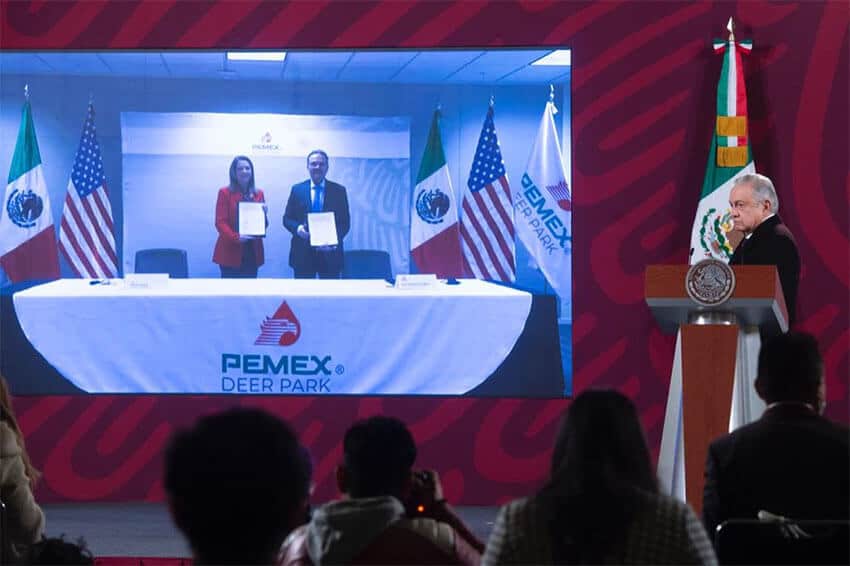
“The people of Mexico are the owners of the refinery,” he assured, before adding that it cost $600 million and would produce 320,000 barrels of oil per day. The Dos Bocas refinery in Tabasco, he appended, would produce 340,000 barrels a day.
Between AMLO and the head of Pemex, Octavio Romero Oropeza, the shareholders of oil company Shell, international bank Barclays and law firm Winston & Strawn were thanked for their work on the deal.
Another near essential resource was to be widely distributed: “There is going to be internet everywhere, we are investing for that,” the president announced.
However, for all AMLO’s positive words for the business community, capitalist bureaucracies still weren’t quite his cup of tea.
“A call to the International Monetary Fund (IMF) to give fair treatment to Argentina. The International Monetary Fund must assume its responsibility for the excessive indebtedness of Argentina,” he said.
Mexico News Daily
